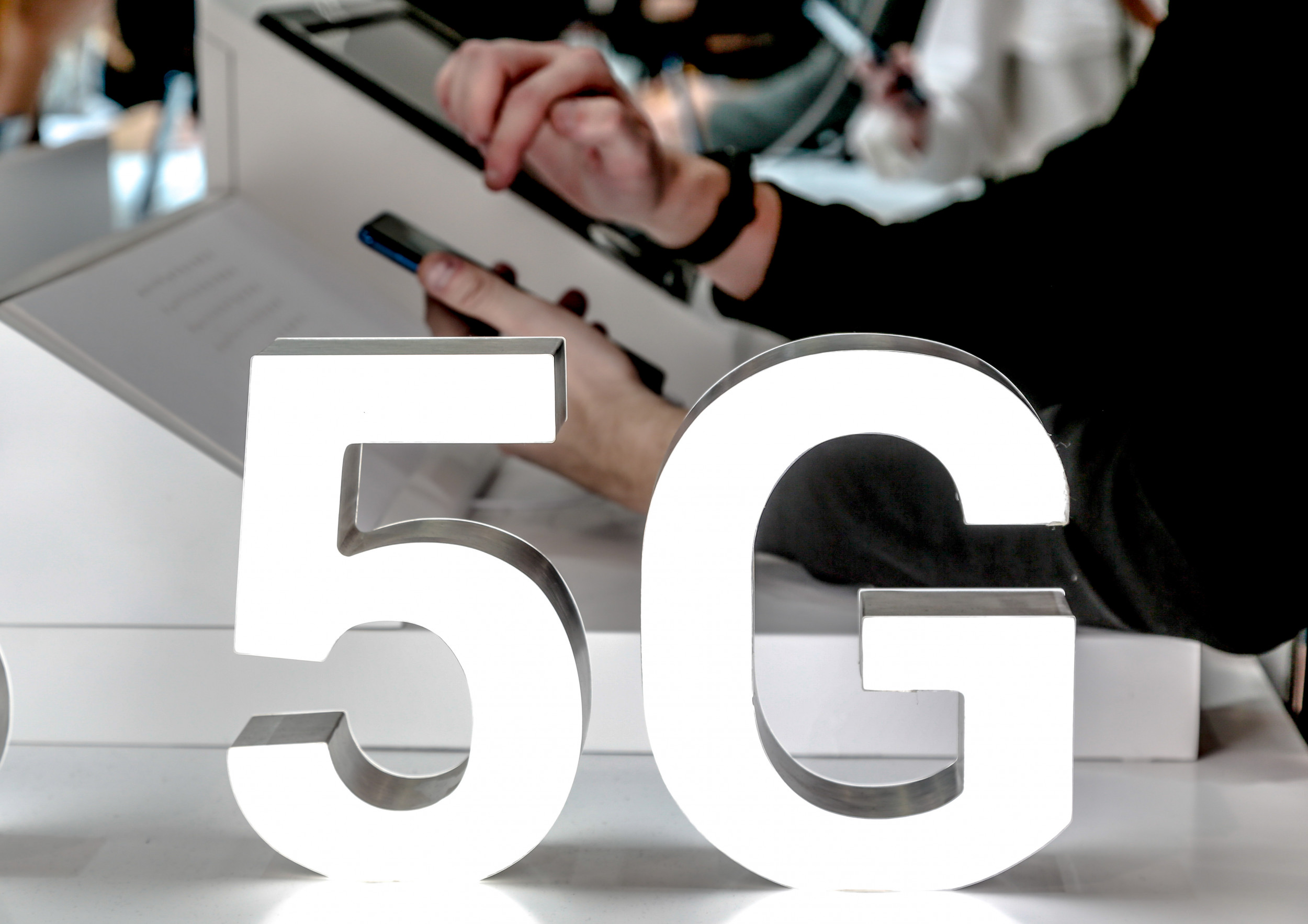'Deeply Concerning': 5G Mobile Networks May Jam Weather Satellite Signals, Meteorologists Say - 4 minutes read
 5G Mobile Networks May Jam Weather Satellite Signals, Meteorologists Say
5G Mobile Networks May Jam Weather Satellite Signals, Meteorologists SayThe race to introduce 5G mobile technology into the U.S. may result in critical weather satellite signals being disrupted, meteorological experts have warned.
A Federal Communications Commission proposal to share a radio spectrum band relied on by weather forecasting services with mobile companies has been firmly opposed by a slew of forecasters. They argue doing so may result in a delay of life-saving data.
Experts warned sharing the 1675-1680 MHz band could impact their ability to warn the public of severe weather warnings via alerts to smartphones and mobile-connected devices.
A letter recently sent to the FCC by the American Meteorological Society, National Weather Association and the American Geophysical Union called the proposal "deeply concerning."
The group said the dedicated band is needed because it is vital for "public safety and scientific research" and appealed for a delay on any decision until a study on the matter by the National Oceanic and Atmospheric Administration is completed. Results of the study are expected in 2020.
5G is a next-generation wireless technology that is expected to result in speedy downloads and better internet connections when rolled out to consumers in the next couple of years. But it has become a focus of fierce rivalry with China, as Beijing rushes to dominate the space.
AccuWeather, which also sent a letter in opposition to the FCC's recent Notice of Proposed Rulemaking, expressed "grave concerns" about the band-sharing idea.
Jonathan Porter, vice president of Business Services, noted that forecasters depend on "timely and reliable receipt" of meteorological data from U.S government satellites—and said this feed will be hit with "harmful interference" if terrestrial mobile services get access to the band.
"[Interference will] postpone dissemination of vital information to the public to aid and protect life, property, businesses, and government operations. The loss of seconds can mean the difference between safety and grave risk to life and property," Porter wrote to the U.S. agency.
The letters were first highlighted by technology website The Register.
Porter added: "We continue to feel strongly that no sharing of 1675-1680 MHz should occur due to the lack of other viable data access options. This portion of spectrum and the infrastructure used to receive data should be considered critical and its interference minimized."
He said disruption may hurt the company's ability to monitor severe thunderstorms, blizzards, forest fires, hurricanes and other weather hazards.
In May, the FCC chairman Ajit Pai unveiled plans to auction the band for flexible use alongside weather satellites. The move is, unsurprisingly, being backed by Ligado Networks LLC, a satellite communications company that is developing 5G and internet-of-things (IoT) technology.
The letters, both in support and opposition, were sent after the commission sought input from industry experts. Submissions have to be sent to the agency by July 22, the FCC said.
The FCC has described the spectrum band-sharing as a way to keep pace with ever-increasing demand for next-generation wireless broadband and "spur innovation and investment."
"For four years under the prior administration, the president's budget proposed that the FCC take action to make spectrum in the 1675-1680 MHz band available for flexible use, subject to sharing arrangements with federal weather satellites," Pai said in a media release at the time. "But nothing happened. It was all talk, no action. Under this Administration, things have changed."
The Trump-appointed FCC commissioner, Brendan Carr, added: "I remain confident... America will win the race to 5G. And this item is one step towards the finish line. It has my support."
Source: Newsweek
Powered by NewsAPI.org
Keywords:
Cellular network • Weather satellite • Military communications • Meteorology • Weather satellite • Military communications • Meteorology • Federal Communications Commission • Radio spectrum • Radio spectrum • Weather forecasting • Mobile phone • Weather forecasting • Hertz • Severe weather • Smartphone • Mobile phone • Federal Communications Commission • American Meteorological Society • National Weather Association • American Geophysical Union • Scientific method • Research • National Oceanic and Atmospheric Administration • 5G • Next-generation network • Wireless • Internet • China • Beijing • AccuWeather • Federal Communications Commission • Notice of proposed rulemaking • Weather forecasting • Meteorology • Data • Satellite • Electromagnetic interference • Terrestrial television • Internet access • Public sector • Property • Government operations • Property • Technology • Website • Hertz • Electromagnetic spectrum • Infrastructure • The Blizzards • Wildfire • Tropical cyclone • Federal Communications Commission • Ajit Varadaraj Pai • Ligado Networks • Communications satellite • 5G • Internet of things • Internet of things • Technology • Information • Federal Communications Commission • Federal Communications Commission • Electromagnetic spectrum • Radio spectrum • Next-generation network • Wireless broadband • Innovation • Federal Communications Commission • Hertz • Time (magazine) • Donald Trump • Federal Communications Commission • Brendan Carr •